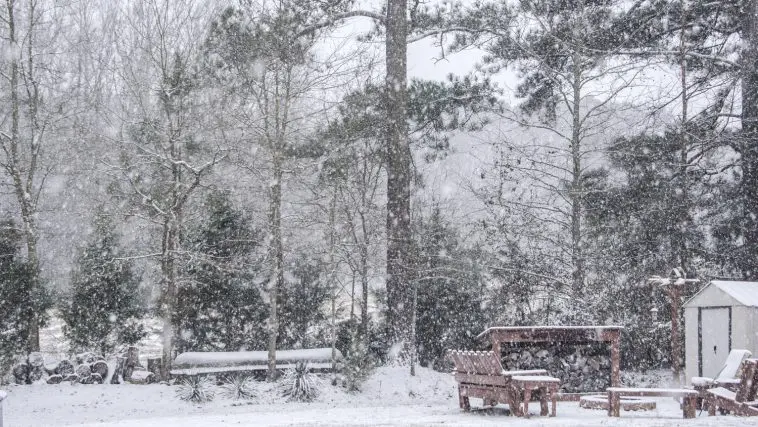[Originally published as We Don’t Snow…]
In the book of Job, God poses a series of rhetorical questions to confront the arrogant knowledge of Job and his counselors. God’s point was to prove man’s inferiority through Job’s inability to answer this inquisition concerning the wonders of nature. Failing an effective riposte, Job admits defeat:
Then Job replied to the LORD, “I am nothing– how could I ever find the answers? I will put my hand over my mouth in silence. I have said too much already. I have nothing more to say.” Job 40:3-5
Sure, Job and his similarly ‘primitive’ friends were unable to answer. But what about today? Doesn’t ‘advanced’ man now possess the knowledge to answer God’s inquiry?
- We have measured the “recesses of the deep” (Job 38:16) — the Challenger Deep in the Pacific Ocean — at 35,814 feet by direct measurement from submersibles and by sonar bathymetry.
- We now “perceive the breadth of the earth” (Job 38:18) to be 3,959 miles in equatorial radius, and 3,949 in polar radius.
- We know that light is electromagnetic radiation within a certain portion of the electromagnetic spectrum (Job 38:19).
- We have unlocked the mysteries of the dew point and understand the formation of dew and frost (Job 38:28).
- We have charted the movements of the constellations with pinpoint accuracy down to a fraction of a second (Job 38:31-33).
- And the Mountain Goat breeds yearly between November and January and has a gestation period of 180 days (Job 39:1).
- “Have you visited the treasuries of the snow? Have you seen where the hail is made and stored? Job 38:22
So, hasn’t all this wisdom made man less inferior? Or, dare I say, even made God less superior, even obsolete? Some would say, “yes.”
Back to God’s inquest concerning snow
Job may not have had the answer, but modern man does!
Snow is formed when temperatures are low and there is moisture in the atmosphere in the form of tiny ice crystals. When these tiny ice crystals collide they stick together in clouds to become snowflakes. If enough ice crystals stick together, they’ll become heavy enough to fall to the ground.
So there, God. We do know where the hail is made and stored.
True, we may know how snow forms. We might even be able to predict with some accuracy when and where it may fall and how much may fall. But do we know it all?
Do even the wisest meteorologists amongst us possess all knowledge? Does man possess enough superior knowledge to make inferior or dismiss God?
Can we now, in our day of advanced knowledge, “remove the hand from our mouths” and put forth a rejoinder to God’s interrogation?
Let’s ask an expert for a prediction concerning today’s simple snowfall.
“The bottom line is that I still can’t delineate a DEFINITIVE zone of where it will be heaviest or most likely. That will come down to random chance effects of mesoscale forcing like a frontogenetic lift that can’t be resolved until we see it on radar and satellite… I hold to what I’ve said earlier about being absolute in amounts or locations, so my hand is forced to broad-brush more than I like to or want to, but sometimes it’s the nature of the beast.”
I guess we don’t really snow it all, after all!






